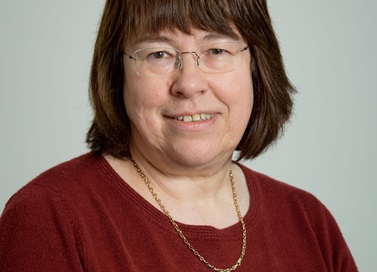Making a statement to combat racism
19 April, 2018
Very unusually I’m writing this blog in my NHS clinic room, as one of my patients has cancelled his appointment.
I still do one day a week of clinical work. This keeps me firmly in touch with reality and away from any ivory towers.
The view from the NHS
Back to the NHS. My clinic room used to be a cupboard and has no windows. I’m delighted that summer seems to have suddenly arrived, but this means that the broken radiator that won’t turn off is more of a problem than usual.
I need to arrive half an hour before the clinic starts. Why? To allow the computer to warm up of course, and to remember all my various passwords. The computer monitor only works if it’s at exactly the right angle and there’s that moment of fear every week that this might be the day it gives up the ghost.
The room I use would benefit from a coat of paint. The chairs are old and mismatched. There are no pictures on the wall.
None of this is the fault of the trust I work for, it’s a result of the constant need to save money year on year. It’s due to putting patient care above buildings, to spending money on staff rather than paint or chairs.
If you’ve worked in the NHS as long as I have you will have become used to shabby surroundings and like me, will hardly notice them.
But today I did see them and can’t help wishing we could do something better. How much difference does the environment make when you are visiting a psychiatrist? I think it might be more than we realise…
Over to Belfast
As well as my clinical work I have had another busy month with conferences and member events. I went to Belfast where the first President’s Lecture ever to be held outside London was delivered by Sue Bailey.
She covered new approaches to prevention and sustainability in the care we deliver. As always, she was interesting, thought provoking and inspiring. You can watch her talk on the College website.
I then attended the Northern Ireland Spring Meeting which was brilliantly organised by Gerry Lynch, Chair of RCPsych NI and his team.
The subject was the Mental Capacity Act (Northern Ireland) 2016 which is due to be introduced and will cover both physical and mental health. The room was so packed that it really was standing room only unless you arrived early.
I know this won’t be straight forward and I’m not underestimating members’ concerns around implementing the new Act, but I can’t help feeling that this is the way forward.
NI psychiatrists will be on the same footing as any other doctors in deciding when to treat someone who is not consenting, a further step towards treating patients with physical and mental illnesses equally.
I know that we all in England, Scotland and Wales (and further afield, no doubt) will be watching closely how things in NI progress.
Important steps forward
Other exciting events over the past month have been the issuing of two College statements. The first of these was on racism.
Racism is one area where there has been a dramatic improvement in the time I have worked in the NHS but there is still a long way to go. The statement is the first step in the College’s plan to improve things, the next step is to work on ensuring action is taken.
The second statement was on supporting transgender and gender-diverse people.
This is another area where work is much needed and will be done. Thanks to all the people who contributed to getting these statements completed.
I look forward to working with members and with other organisations to ensure that the important recommendations are followed through.
Cambridge, at last
My latest conference was the Gatsby Wellcome Neuroscience Spring meeting in Cambridge.
As someone who grew up in Oxford, you won’t be surprised that I’ve been ingrained with the belief that Cambridge was a pretty poor sort of a place but this turned out to be completely wrong.
It is actually lovely with beautiful buildings and a wealth of history, as I’m sure you know.
The most interesting thing was the Corpus Clock, worth a visit in itself.
The conference was fascinating with research so new that it hasn’t been published yet and some very interesting sessions on the theory that inflammation may be what underlies depression.
Keep on Choosing Psychiatry
Being back in a University setting made me all the more conscious of routes to becoming a psychiatrist. Before our next set of new trainees even start, we begin the new round of our recruitment campaign, Choose Psychiatry.
We will be working hard on this centrally but what really attracts people into our profession is all of you. Please do fly the flag for our specialty. Let trainees and students see what a rewarding career Psychiatry is.
A particular part of the first campaign’s success was the willingness of psychiatrists up and down the country to record short clips on ‘why I chose psychiatry’ to share on social media.
It really created a buzz and I loved seeing so many of you talk about your passion for our work.
We’re after your support again from May onwards this year and I look forward to seeing your contributions.


